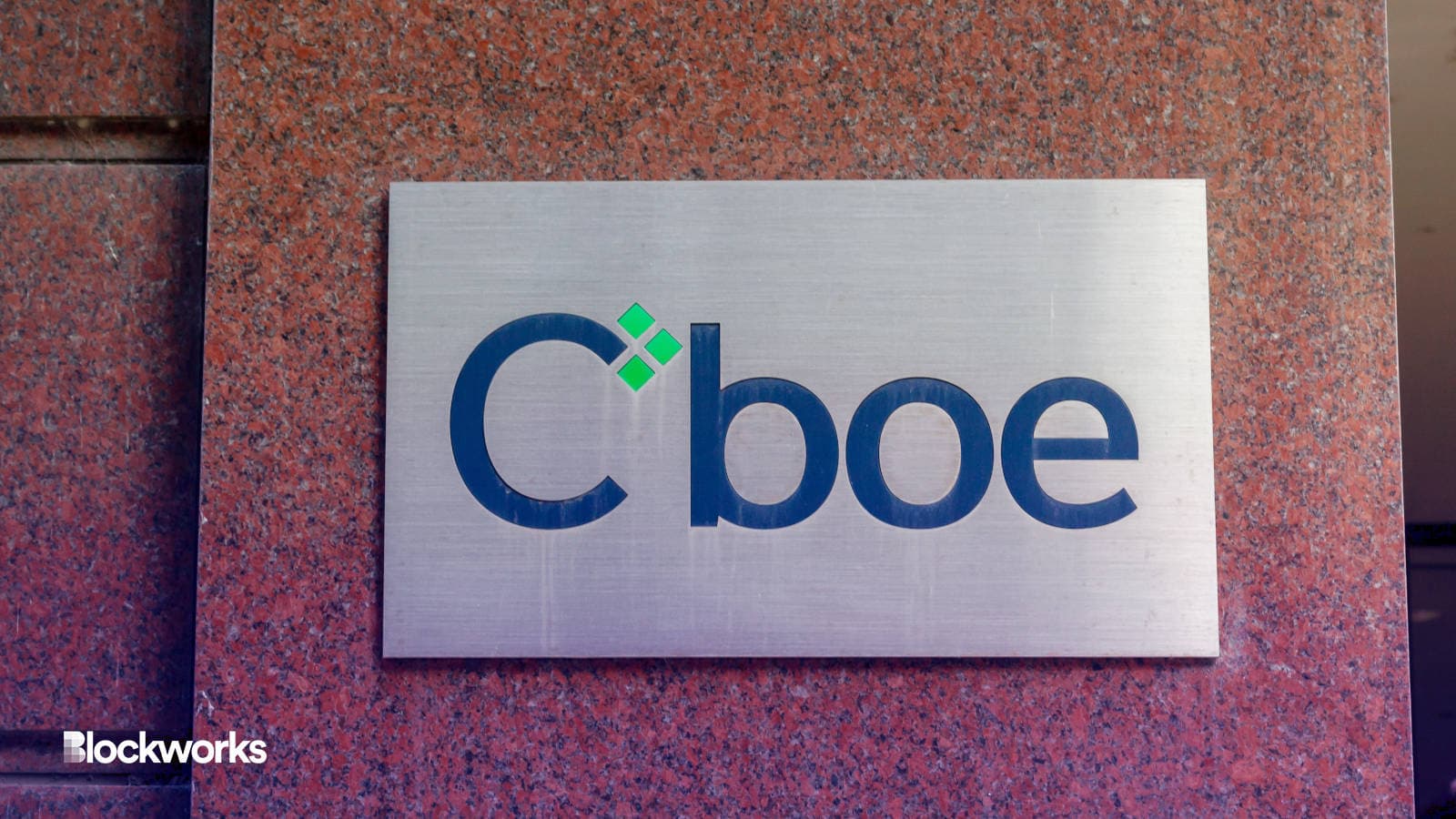Amid Crypto Chaos, CFTC Approves Cboe For Futures Margin Trade
Cboe Digital has CFTC permission to provide clearing services for margin trade on crypto futures at a time when regulators are closing in

JHVEPhoto/Shutterstock modofied by Blockworks
The Commodity Futures Trading Commission (CFTC) has given the green light for Cboe Global Markets to offer crypto more products as a derivatives clearing organization under the Commodity Exchange Act.
Cboe Digital, a platform that handles crypto spot and crypto derivatives markets, received the go-ahead to provide leveraged derivatives once the contracts are introduced in the latter half of the year.
The updated order allows Cboe Clear to offer clearing services for digital asset futures on a margin basis to futures commission merchants. This is in addition to the previously authorized fully collateralized futures and swaps, according to a Monday statement.
Cboe Digital also supports spot trade for cryptocurrencies including bitcoin (BTC), bitcoin cash (BCH), ether (ETH), litecoin (LTC) and USDC.
CFTC Commissioner Christy Goldsmith Romero said the updated registration order lets Cboe clear more crypto futures contracts, while implementing careful risk-reducing measures.
Cboe’s application is quite unlike FTX’s application for a direct-to-customer market structure without any middlemen, according to Romero. FTX’s application was withdrawn after the company filed for bankruptcy in November.
“The proposed FTX model was never adopted by the Commission, but it put at risk customers’ bankruptcy priority, other customer protections, and financial stability,” she said.
Cboe’s clearinghouse has been registered with the Commission since 2019. Its parent company Cboe, headquartered in Chicago, has over 50 years of experience running exchanges in regulated futures, options, foreign exchange, and equities markets, she added.
Shortly after acquiring crypto exchange and clearinghouse ErisX last year, Cboe Digital partnered with companies like Jump Crypto, Interactive Brokers, and Robinhood to expand its digital asset business.
“We’ll integrate only where it makes sense, but we realize that in this asset class we need to move quickly,” Cboe COO Chris Isaacson told Blockworks after the closing of the ErisX deal. “Keeping that agility with this wholly-owned subsidiary is a great move.”
Cboe said it intended to create a digital advisory committee composed of the partner firms.
There’s currently $11.95 billion in bitcoin open interest and $6.17 billion in ether open interest across 12 platforms, excluding Cboe Digital’s ErisX, per CoinGlass.
Get the news in your inbox. Explore Blockworks newsletters:
- The Breakdown: Decoding crypto and the markets. Daily.
- 0xResearch: Alpha in your inbox. Think like an analyst.






